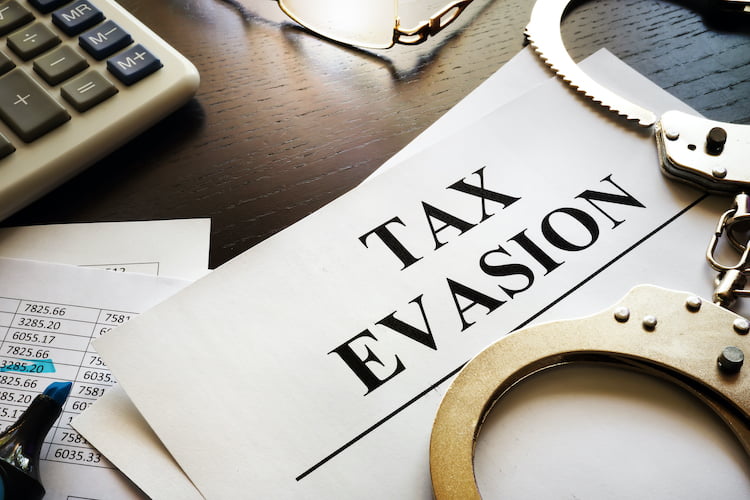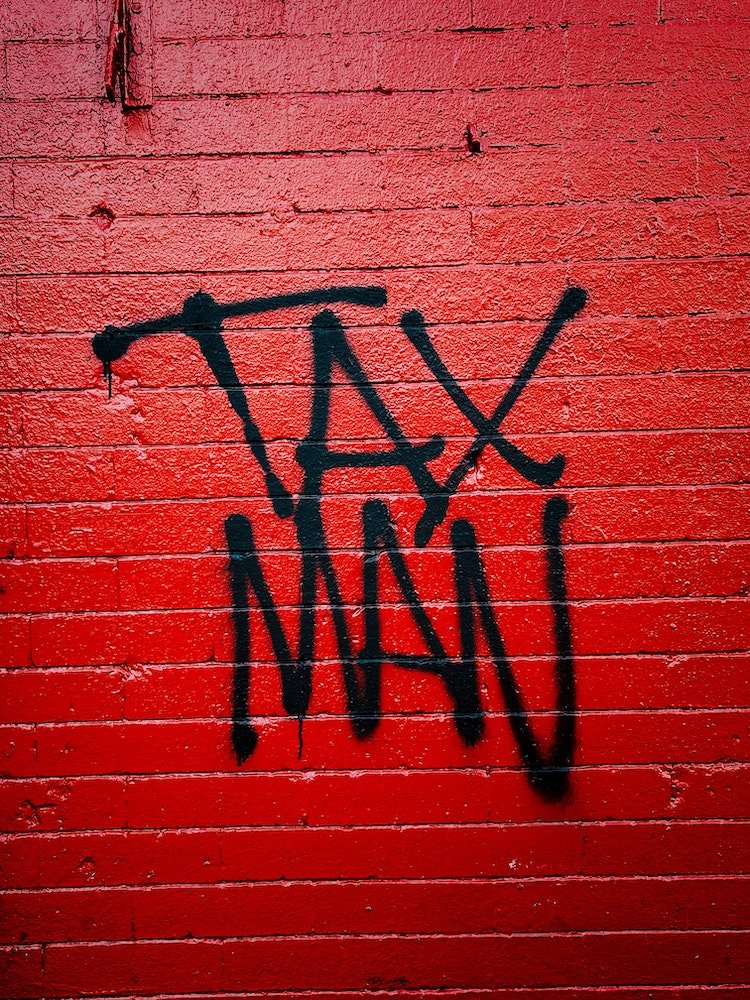DALLAS TAX EVASION ATTORNEY
HAVE YOU BEEN Charged with Tax Evasion?
Are you facing charges for tax evasion? Avoiding or failing to pay taxes to the Texas State and/or United States government is a serious criminal offense. Most cases are handled in the federal courtroom. Federal cases employ the toughest prosecutors and harshest penalties. Do not face charges of tax evasion alone.
A conviction on charges of tax evasion could result in decades in prison and excessive financial damages. Fight back against these allegations by reaching out to an experienced federal criminal defense lawyer immediately. A tax evasion defense lawyer can develop an aggressive and effective strategy to beat these charges.
REACH OUT TO THE TOP Tax evasion Defense Lawyer in Dallas
Tax evasion is considered fraud against the United States Government and an aggressive, experienced tax evasion lawyer is a critical first-call if you are charged with tax evasion.
Tax evasion is a serious crime that will require experience, knowledge, and skill that only a top defense attorney can possess to defend you in a federal courtroom or federal hearing.
Gregg Gallian of Gallian Firm is an experienced, award-winning federal defense lawyer who will will provide a free consultation and case review for your case and provide you the best possible information with which you can consider and weigh your options. As a former prosecutor, he knows all the tricks that the federal government may use against you, and has strategies ready for each and every one of them. Even if you have hired another attorney, Gallian is going to be there for you, and is worth the time it may take to make a call. You will be very glad you did,
Before we go any further, let’s learn more about federal charges of tax evasion and the details of how you can best proceed if you have already been charged.
THE DEFINITION OF Tax Evasion
The IRS defines tax evasion as an intentional, willful attempt to evade tax liability. Both individuals and/or businesses could face these charges. There are two forms of tax evasion, including the invasion of tax assessment, or the evasion of paying the tax due.
EVASION OF TAX ASSESSMENT

An individual or organization avoids tax liability by intentionally failing to file taxes or attempting to defeat tax assessment.
For example, evasion of tax payment would include an individual who intentionally fails to report income. This could also pertain to cases when an individual or entity claims tax deductions that they are not entitled to receive.
EVASION OF TAX PAYMENT
An individual or organization attempts to evade the payment of due taxes.
Evasion of tax payment occurs in cases when tax liability has been assessed but the defendant fails to pay. These cases are usually brought forth when the defendant attempts to hide financial assets that could be used to settle acquired tax debt.
SOME EXAMPLES OF Examples of Tax Evasion
The most common form of tax evasion occurs when an individual makes false declarations to tax authorities and/or fails to report earned income.Reporting less income than incurred. Examples of tax evasion include:
- Claiming more deductions than applicable.
- Paying for childcare under the table.
- Failure to report cash income.
- Failure to report income from overseas.
- Failure to report gambling wages.
You could face charges of tax evasion for failure to report earnings from both legal and illegal activities. For example, income earned from the sale of illegal drugs or narcotics.
THE DIFFERENCE BETWEEN Tax Evasion and Tax Avoidance
Tax avoidance is completely legal and is committed by countless individuals annually. Individuals who avoid paying taxes will eventually meet their tax obligations through an arrangement with the IRS.
Tax evasion differs in that the individual intentionally and willfully fails to file a return, pay taxes, or otherwise avoids meeting their tax burden.
TEXAS STATE LAWS FOR Tax Evasion
Texas does charge citizens income tax. Therefore, most cases of tax evasion on the state level involve fraudulent business accounting practices.
For example, a business that intentionally under or overreports income could draw the attention of the IRS. An IRS audit could reveal numerous additional tax fraud-related charges.
In Texas, state tax evasion charges can bring up to five years of imprisonment and a fine up to $250,000. There can be other complicating factors like tax fraud, making false statements and intentionally failing to file a return, which can lead to additional years in prison and hefty fines.
Federal Laws for Tax Evasion
The majority of cases of tax evasion are committed against the IRS. The IRS manages all financial matters regarding the US government. These cases are brought before the federal courtroom.
Tax evasion is defined under the United States Code 26 § 7201. This code states that anyone that attempts to evade any tax imposed will face felony charges.
SOME OF THE Possible Penalties for Tax evasion

Federal prosecutors often investigate crimes of tax evasion for extended lengths of time before pursuing charges. The possible penalties for tax evasion depend on several factors, including the amount of taxes owed, other charges in the case, and the defendants criminal history. Failure to file a tax return could result in up to one year behind bars and fines of up to $100,000.
Making fraudulent statements on a tax return could result in up to 3 years behind bars and fines of up to $250,000.
Felony tax evasion carries penalties of up to 5 years behind bars and fines of up to $100,000. Fines increase up to $500,000 if tax evasion is committed by a corporation.
“
Gallian Firm could potentially have tax evasion charges dropped or lessened by building a strong defense case. It is imperative if you have been charged with tax evasion by either the State of Texas or the US Government that you reach out and call (214) 432-8860 as soon as possible for a free case review
STRATEGIES THAT CAN BE UTILIZED FOR Tax Evasion Defense
There may be several defense strategies that an experienced criminal defense lawyer could utilize to fight allegations of tax evasion. Which defense strategies are applicable, depends on the unique circumstances of each case, including the amount of evidence that exists. Some defenses include:
- Simple Mistake
- Insufficient Evidence
- Lack of Intent
- Statute of Limitations
Your criminal defense lawyer will need to assess the unique circumstances in your case to determine which strategy will be the most effective.
SIMPLE MISTAKE
Unintentional misrepresentation of income is common, especially among self-employed individuals and sole proprietorships. A simple mistake in income reporting is not grounds for tax evasion charges.
LACK OF EVIDENCE
Lack of evidence is a common defense strategy but will only be effective in cases without a monetary trail. Your tax evasion defense lawyer may present the argument that there is a lack of evidence that the necessary elements of the crime are non-existent.
LACK OF AFFIRMATIVE ACTION
The prosecution will be required to prove that the defendant committed an affirmative action to evade taxes. Simply failing to file a tax return, or passive evasion, is not grounds for tax evasion charges. However, filing an inaccurate W-4 in combination with failing to file a return constitutes affirmative action.
YOUR NEXT STEPS IF Facing Tax Evasion Charges
Facing charges for tax evasion can be a terrifying experience. Your freedom, family, professional endeavors, and future are on the line.
1). CONTACT A TAX EVASION LAWYER IMMEDIATELY

Federal detectives and law enforcement investigate these crimes thoroughly before pressing charges. An investigation may have been going on for years without your knowledge. Contact a evasion lawyer immediately before proceeding.
2). DO NOT DESTROY OR ATTEMPT TO HIDE ANYTHING
Do not destroy any documents, close any financial accounts, or hide any financial assets or files. These actions could be perceived as an admission of guilt.
3). REFUSE TO DISCUSS CASE
Seek the guidance of your tax evasion criminal defense attorney before speaking with anyone regarding your case.
GALLIAN FIRM IS THE BEST Defense Lawyer for Tax Evasion
Tax evasion is a serious crime that is taken seriously by both the State of Texas and by the Federal Court System. The stakes are high in these cases. It is imperative that you choose the best criminal defense lawyer to fight back against these charges.
Gallian Firm understands the emotional and financial stress caused by accusations of tax evasion. Gregg Gallian Firm are experienced tax evasion defense lawyers who fight with boldness in negotiations with the government on any tax-related defense matter. Gallian Firm has the knowledge, tools, and resources to beat or reduce even the most difficult charges related to tax evasion. In many cases like tax evasion, it takes a skilled negotiator to represent you and reach a favorable result. Gallian Firm has these skills and the track record to prove it.
This award-winning track record in negotiations should not be taken lightly–Gallian Firm will work vigorously to get you favorable treatment by tax authorities and will approach every step with skill and seriousness. Contact Gallian Firm today to discuss your case as part of a free consultation. Call 214-432-8860 or visit online for more information.
They will fight aggressively and relentlessly for you if you are facing charges of tax evasion.
GET YOUR free CONSULTATION
Send a message to Gallian Firm and we will contact you as soon as possible.



